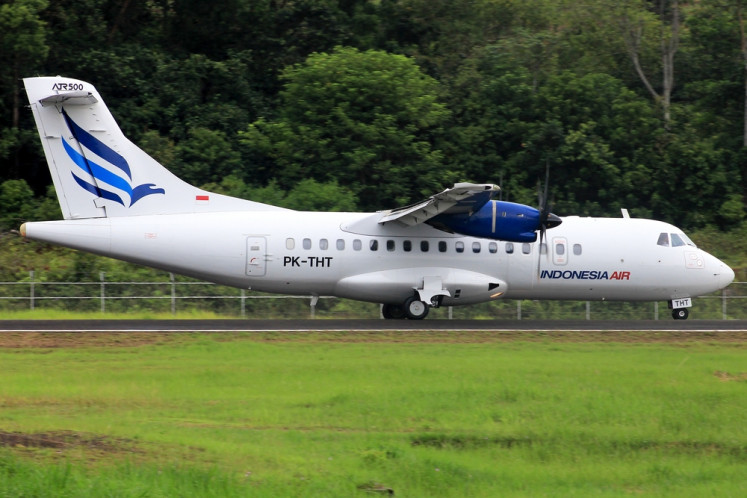Popular Reads
Top Results
Can't find what you're looking for?
View all search resultsPopular Reads
Top Results
Can't find what you're looking for?
View all search resultsRI prepared to face Japan at WTO over mineral ore export ban
Responding to a Japanese statement, Indonesia has expressed its willingness to meet Japan in the World Trade Organization (WTO) to discuss a ban on raw mineral ore exports, which has been affecting Japanese industries, the Industry Ministry has said
Change text size
Gift Premium Articles
to Anyone
R
esponding to a Japanese statement, Indonesia has expressed its willingness to meet Japan in the World Trade Organization (WTO) to discuss a ban on raw mineral ore exports, which has been affecting Japanese industries, the Industry Ministry has said.
Industry Minister MS Hidayat said Monday that the government would defend its domestic interest of spurring growth in the country's downstream industry by adding value to its own natural resources.
'It's fine for [Japan] to exercise its right [through the WTO]. But, is it fair for it to protest us when we want to grow our industry by securing raw materials that they've been using for decades to build their industry?' he told reporters at his office.
Indonesia would be willing to seek 'win-win' solutions with Japanese stakeholders outside the global trade governing body's consultation or dispute settlement forum, Hidayat added, citing as an example willingness to guarantee ore supplies for Japanese firms set to invest in processing facilities in Indonesia.
Indonesia, a major global suppliers of key commodities such as palm oil, coal, tin, nickel and bauxite, started on Jan. 12 to ban exports of unprocessed minerals to stimulate growth in its processing industry and add value to its resources.
Global nickel prices rose after the ban took effect. Japan, home to some of the world's top stainless steel producers, is struggling to cope with higher costs and has been seeking new sources to supply nickel
after the ban took effect.
Japan got 44 percent of its nickel ore from Indonesia in 2012. The Energy and Mineral Resources Ministry forecast in late January that national nickel output would plunge drastically by 94 percent to 3.5 million tons this year, Reuters said.
Japan's Economy, Trade and Industry Ministry's director general Takayuki Sumita told Reuters last week that the Japanese government was going over the details of Indonesia's ban, and if it found strong evidence that the regulation breached WTO rules, it would bring a case before the world trade body.
The proposed move has been supported by Japan's mining business group. The Japan Mining Industry Association (JMIA) chairman, Naohisa Miyakawa, said in a statement quoted by Reuters that the group would request the Japanese government file a complaint over the mineral ore export ban with the WTO so that its dispute settlement body (DSB) could rule on the matter.
Dispute settlement consultation of up to 60 days is the first step at the WTO. If the conflicting parties fail to reach and agreement, the case advances to the DSB.
Deputy Trade Minister Bayu Krisnamurthi said he was unaware of Japan's plan to seek consultation at the WTO.
'We are still engaging in informal talks with Japan over this issue,' Bayu said in a text message.
If the 'informal' talks fail to resolve the problem, Japan will likely join forces with China, which is also a major buyer of Indonesian minerals, according to Nikkei.
Indonesia is not the only country imposing a ban on commodity exports to support its industry.
In 2010, China restricted exports of rare essential minerals used to produce many high-tech devices from smartphones to automobiles. In 2012, Japan teamed up with the United States and the European Union to challenge China over the policy.










